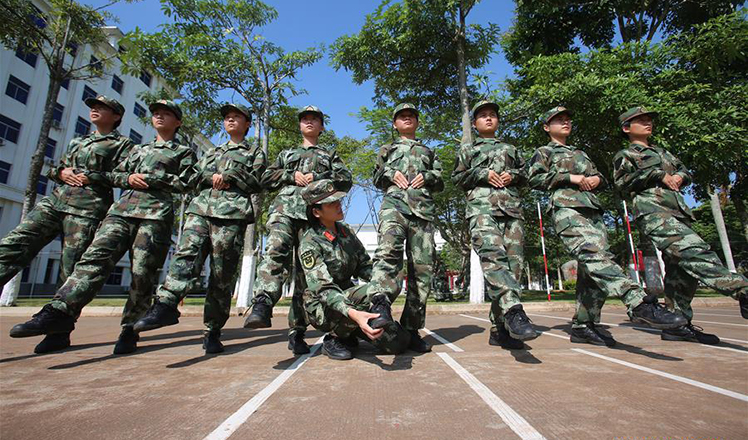Factory shows nation on right track
Updated: 2016-10-14 07:55
By Zhang Haizhou(China Daily USA)
|
||||||||
I still remember the unpleasant smell, dim lighting, dirty floor and waves of nausea that washed over me when I visited a cigarette factory in my hometown in mountainous Southwest China in the early 1990s.
I was on a tour to teach students about what was then considered a model manufacturing plant as the country took steps toward industrialization.
So my expectations were fairly low during my recent visit to a factory in the Phnom Penh Special Economic Zone in Cambodia, which, in eyes of many Chinese, has some resemblance to the China of the past.
But Liwayway Food (Cambodia) Industries, a local branch of the Philippines' famous snack producer Oishi, surprised me with its automated machinery, bright and clean work areas, and brisk production process.

"We want to be a leading industrial zone in the (Greater Mekong) region," said Hiroshi Uematsu, CEO of the special economic area.
The zone is emblematic of Cambodia's efforts to shift its industry into more sophisticated light manufacturing and away from apparel production.
The effort, although not easy for a country of meager resources, has potential.
Established in 2006, the zone has attracted 77 manufacturers, including big brands like Toyota, Yamaha and Coca-Cola, from 15 countries and regions.
The 350-hectare zone resembles, at least on the surface, industrial zones in other regional manufacturing powerhouses like Vietnam and Thailand.
Uematsu said companies in the zone soon will be producing auto parts, a big step up from assembly.
But industrialization in Cambodia as a whole has a long way to go.
Official statistics show that manufacturing occupies less than a third of the total economy, lower than agriculture or services. Apparel production alone accounts for more than 10 percent of Cambodia's economy.
Though the country is "still in the beginning" of industrialization, Uematsu pointed out that its location between Thailand and Vietnam is a key advantage.
Xue Dong, marketing director of Sichuan New Hope Agribusiness (Cambodia), said the local subsidiary of New Hope Group, China's largest privately held agricultural company, is already a top three player, with an 18 percent market share, after only five years in Cambodia.
Xue said the company hopes to become a multisector conglomerate in Cambodia, but finding qualified talent remains a big challenge.
Contact the writer at: zhanghaizhou@chinadaily.com.cn
(China Daily USA 10/14/2016 page3)
- Hollande, Merkel, Putin discuss how to implement Minsk peace deal
- Pentagon vows to respond to attempted missile attacks at US destroyer near Yemen
- NASA to invite private companies to install modules on space station
- Trump accused of inappropriate touching by two women
- White House denounces terror attacks in Afghanistan
- Republican voters frown on party establishment's criticism of Donald Trump

 Superheroes make surprise visit to children's hospital
Superheroes make surprise visit to children's hospital
 Female soldiers take training in Hainan
Female soldiers take training in Hainan
 Premier Li vows anew to ease market access
Premier Li vows anew to ease market access
 Cutting-edge gadgets on display at innovation expo
Cutting-edge gadgets on display at innovation expo
 Take a glimpse into soccer-related gifts of Xi
Take a glimpse into soccer-related gifts of Xi
 Precious relics of debauched king on display in Jiangxi
Precious relics of debauched king on display in Jiangxi
 In pics: Britain's Kate visits the Netherlands
In pics: Britain's Kate visits the Netherlands
 Qizai, rare brown giant panda in China
Qizai, rare brown giant panda in China
Most Viewed
Editor's Picks

|

|

|

|

|

|
Today's Top News
Trump outlines anti-terror plan, proposing extreme vetting for immigrants
Phelps puts spotlight on cupping
US launches airstrikes against IS targets in Libya's Sirte
Ministry slams US-Korean THAAD deployment
Two police officers shot at protest in Dallas
Abe's blame game reveals his policies failing to get results
Ending wildlife trafficking must be policy priority in Asia
Effects of supply-side reform take time to be seen
US Weekly

|

|